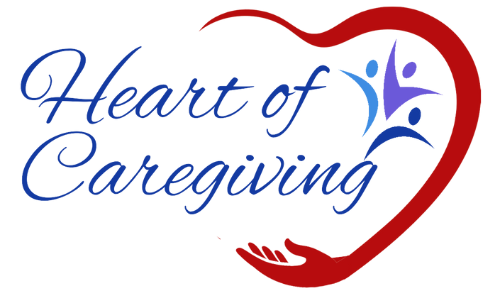Caregiving is a life-changing event. It changes our life’s trajectory and doesn’t get the attention a birth, death, marriage, home purchase, or disease diagnosis receive. We don’t send out announcements, host a get-together, receive words of support, or often even share that we have embarked on a caregiving journey. Why not? There are several reasons caregiving may not come up in our conversations, but the one that can disempower us, and cause regret is denial. Denial can be intentional and driven by fear, “I am not a caregiver. That is too much responsibility.” Or “My mom doesn’t need a caregiver. I am just helping her with finances and errands.”
Denial can be the result of a misperception. For example, we incorrectly believe that the caregiver role is reserved for someone who is much older, providing care for someone who is incapacitated. We can also be in denial because we are unaware of where our current path leads, which is to an increasingly more and more intense caregiving experience. It’s understandable. This is new territory, and we don’t recognize the warning signs. Or, we have concerns, and a physician does not validate them, so we wait. And then, there is a crisis. Hindsight is 20/20, and everything becomes clear. The signals were there all along. We just didn’t notice them. Here are three ways we can avoid our caregiving journey getting derailed by denial.
Watch for the Warning Signs
We can be more in tune with what the future holds when we step out of denial and into awareness. A heightened sense of awareness is not the same as a heightened sense of worry. We can take note of our family member’s health condition, the condition of their home, and the condition of their bank account and set a baseline. We can notice our state of being, including our physical, emotional, and mental state. This can be our baseline, and when we experience shifts in our well-being, we can make adjustments before we are immersed so deeply in the experience that we have given up all that helps us feel healthy and whole.
Watch for the warning signs and a change in the baseline. Have you noticed home cleanliness slipping, changes in personal hygiene, or bills piling up on the kitchen table? These indicate that something more serious may be happening and prompt us to do some investigative work. What else could you be missing? Check for expired food in the refrigerator, pills on the floor, past due notices, or a change in spending habits. These warning signs allow you to address a small problem before it becomes a big one. In the case of symptoms, some treatments become unavailable as time passes. Our denial can be a disservice to our family member and leave them with fewer options as time passes. An accurate diagnosis can take time; the sooner the process starts, the better for all involved.
Face your Fear
It is understandable to want to turtle up and hide in our shell. Caring for an aging family member inspires fear. We fear what the future holds for our care recipient and ourselves. The longer we avoid reality, the greater our fears become until they loom over every thought and action or inaction.
Face your fear. This is hard, but you can handle it. It is essential to recognize and feel the fear, feel the frustration, and feel the pain. Holding it in is temporary, and you lose control over how it is expressed. A constant state of fear keeps us in fight or flight mode. Our anxiety might manifest itself physically through an illness or physical pain. We might find that our fuse becomes shorter and shorter, and we release our frustration over smaller and smaller grievances. We might become depressed as fear overshadows even the activities that previously brought us joy. Fear also paralyzes us. When we sit with our fears, journal about them, and talk about them, they lose power over us. We feel lighter and can make a plan to help us step out from under the dark cloud.
Lean into that Learning Curve
It may be making the plan that inspires fear. There is a lot to learn when we begin caring for a family member, and learning is further complicated by the emotions that impact every decision. We may be skilled at planning budgets at work but planning a budget for care is personal and daunting. There is a lot we don’t know, and there is a lot at stake.
Accept that you are in uncharted territory, and you can find guides for each new section of your journey. If you need to hire help, figure out how to manage care when your family member comes home from the hospital or understand the progression of a disease, lean into that learning curve by taking one step at a time. Before you know it, you will have charted your path, learning new information that will improve your situation, and have a plan that will help you stay focused on moving forward and off that side trip into denial.
To prevent denial from derailing your caregiving journey, get the Step out of Denial Action Plan at HeartofCaregiving.com. Take action to cultivate awareness, face your fears, and lean into the learning curve so that you can locate and maximize support and resources.
Please join me on my book launch journey! 21 Mistakes Caregivers Make & How to Avoid Them will be available on September 20, 2023, and I need your help to make the launch a success and reach the caregivers who need this resource.
Please follow this link, https://spotlightpublishinghouse.com/toni-gitles-book-launch-team, and choose:
💙 Support the launch and purchase the book prior to the release date for $0.99.
💙 Join the team and help me with the promotion.
Please invite others in your network to join and support the launch. Thank you for your continued support!


